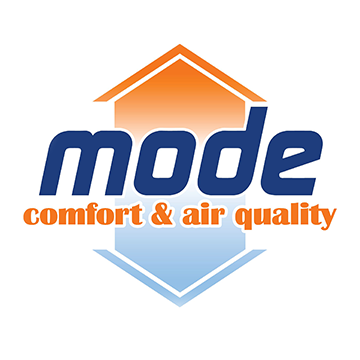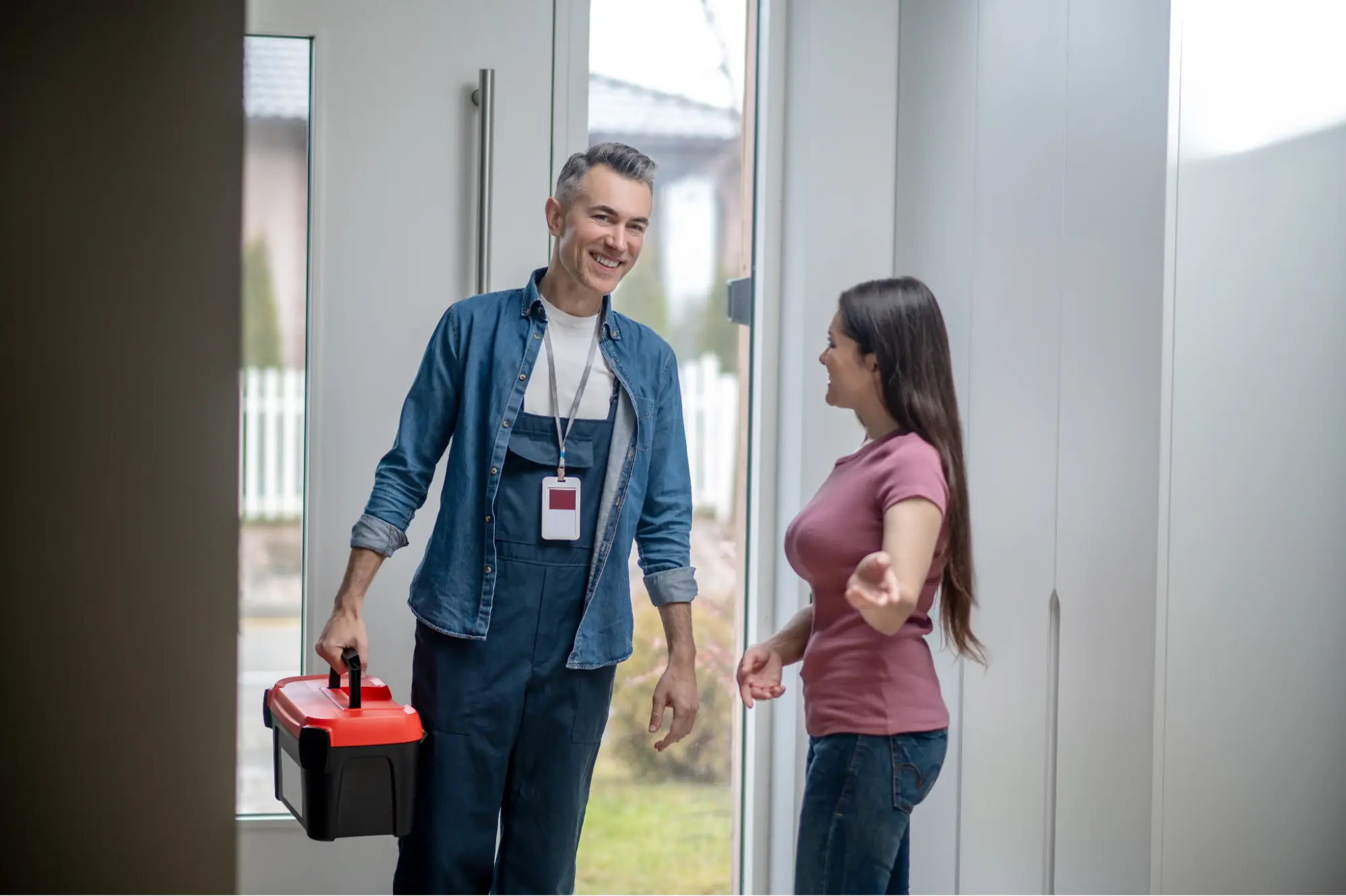Homeowners often face the dilemma of distinguishing between an HVAC hiccup and an outright emergency. In order to address this concern, it’s important to know what truly constitutes an HVAC emergency and calls for your immediate attention, versus an issue that requires maintenance without such urgency. Mode Comfort has experience helping homeowners and small businesses with all types of HVAC issues so we are happy to give some guidance.
Identifying HVAC Emergencies
When your HVAC system falters, it’s not just about discomfort—it could pose serious risks. HVAC emergencies involve situations where a delay in repair can lead to dire consequences, from health issues to significant property damage. Understanding the severity of HVAC issues is the key to handling them appropriately. Here’s a breakdown of urgent HVAC emergencies requiring prompt action.
- No Heat Emitting From Unit: This issue not only affects your home comfort, but depending on the severity of the cold, may also pose a risk to your pipes, which can freeze and burst, leading to serious water damage and costly repairs.
- Your Cooling Mode Is Blowing Warm Air: There could be several causes for this, including a refrigerant leak, a compromised compressor, a dirty air filter, or an issue with the thermostat. Neglecting this warning sign can lead to a complete breakdown of the air conditioning system, which may result in costly repairs.
- Safety-Related Concerns: If you notice any signs of electrical issues, such as sparks, burning smells, or frequent circuit breaker trips, it’s crucial to act immediately. These may indicate a potential fire hazard. Ensure that you have a functioning fire alarm within close proximity to your HVAC system.
- Gas Leak: If you suspect a gas leak, often recognized by a rotten egg smell, this constitutes an emergency due to the risk of explosion or carbon monoxide poisoning. Promptly evacuate the area and contact emergency services or your gas company before calling a licensed HVAC professional. Always have working carbon monoxide detectors near your HVAC unit.
These scenarios signify HVAC repair emergencies that require immediate attention from an HVAC professional. At Mode Comfort, we are well-equipped to assist with all air conditioning emergencies. Call at 804-481-6633 if you are experiencing any emergency issues and need immediate assistance.
What’s Not Considered An HVAC Emergency?
While certain problems require swift responses, not every HVAC issue requires an emergency response. Recognizing the difference between emergency heating and cooling issues and regular mishaps can save you stress and money. Let’s explore some common issues that don’t require an emergency response.
- Mild Temperature Fluctuations: These can often be due to external factors or minor system inefficiencies.
- Regular Maintenance Alerts: Some high-end modern HVAC systems will alert you when it’s time for regular maintenance, which is not an emergency but a reminder to schedule a check-up.
- Slightly Increased Energy Bills: If you notice your energy bill is slightly higher than usual, it may not be an immediate emergency. It could indicate that your system needs a tune-up.
- Dusty Smell When Turning on the Heat: A dusty odor upon turning on the heater after a long period of inactivity is common, as dust accumulates in the ducts. The smell should clear after a short while.
- Dirty Air Filters: Changing air filters is an important step for maintaining a healthy HVAC unit, but will not lead to emergency situations.
- Minor Water Leaks: If there’s a small amount of water leaking, it could be condensation or a minor issue with the drain line.
- Short Cycling: Short cycling, or when the system frequently turns on and off, isn’t ideal for efficiency and may require a simple thermostat adjustment.
Distinguishing these less pressing issues from genuine emergency air, heating and cooling situations can offer relief and guide you towards the appropriate course of action. To avoid any such issues, you can schedule regular maintenance with the technicians at Mode Comfort. When you enlist the services of our experienced technicians, you can avoid any issues, emergency or not.
Steps You Can Take First in HVAC Emergencies
Once an emergency heating and cooling situation is evident, there are crucial steps to take before professional help arrives. Let’s explore how to handle these moments.
- Assess the Scene: Verify that the issue at hand is indeed a critical concern.
- Power Down: Turn off your HVAC to prevent additional damage or hazards.
- Evacuate if Necessary: If you smell gas or have a carbon monoxide alarm ringing, it is essential to exit the property and call emergency services.
- Seek HVAC Support: Contact emergency HVAC services without delay.
These steps ensure that you’re doing everything possible to mitigate risks while awaiting expert intervention. It is important to know the risks associated with HVACs. Having regular maintenance, such as the programs offered at Mode Comfort, allows you to better understand your system and when to look for emergency signs.
Get Professional HVAC Emergency Services: Call Mode Comfort
When an HVAC emergency strikes, Mode Comfort can aid in your HVAC havoc. Our technicians are swift and skilled when it comes to an emergency. But, whether it’s an emergency or not, addressing timely repairs saves both stress and financial strain. Investing now in our HVAC Repair Services can lead to less emergency situations in the future. Entrusting Mode Comfort with any HVAC need means getting back to comfort and security swiftly.
Frequently Asked Questions
What is HVAC emergency heat?
Emergency heat, often referred to as “auxiliary heat”, is a secondary heating component that’s used when the temperature outside is too cold for your primary HVAC system to keep up with the demand for warmth.
What to Expect During an HVAC Emergency?
It’s essential to contact an HVAC service provider as soon as possible, as delays can lead to increased discomfort, higher repair costs, and in some cases, health risks. While you await their arrival, take precautionary steps such as turning off your HVAC system to prevent further damage, and if possible, opening windows or using fans to maintain a moderate temperature.
What is the most common HVAC problem?
Some of the most common HVAC issues include irregular changes in thermostat temperatures, neglected air filters, holes or gaps in the ducts, pilot light issues, and just a general need of maintenance from wear of the system over time.
Is HVAC leaking an emergency?
Not all leaks are considered an emergency, but there are a few things to keep an eye out for that increase urgency. If you see the system is leaking refrigerant, this can cause an environmental or efficiency emergency. Water leaks can quickly lead to mold, so should be handled as fast as possible. The smell of gas leaks or gas alarms ringing is an immediate red alert and you should shut off your HVAC system, call emergency services and schedule maintenance as soon as possible.
Can HVACs cause an electrical fire?
HVAC systems can be a source of electrical fires if not properly maintained or installed. When HVAC components like motors, fans, or wiring malfunction and become worn, they can overheat, which, in some cases, sparks an electrical fire. In order to prevent such hazardous incidents, it is crucial to schedule routine check-ups with certified HVAC technicians. Reach out to the experts at Mode Comfort to schedule your regular maintenance so you can know you are getting the most out of your HVAC system.


